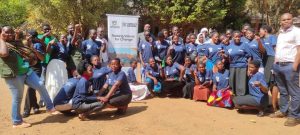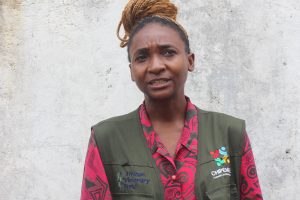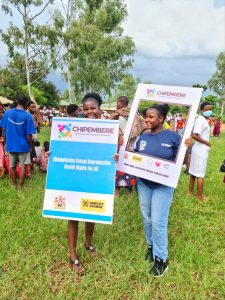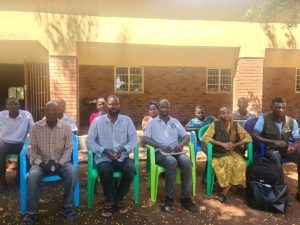
Spearheading change — Peer educators pose for a photo after completing a training session facilitated by CCDO.
Communities across Mulanje are celebrating a wave of transformation brought by Chipembere Community Development Organization (CCDO)’s project, “Raising Voices for Change: A Summon to Promote SRHR Access in Rural Mulanje.”
Supported by Amplify Change, the initiative is making significant strides in promoting comprehensive Sexual Reproductive Health Rights (SRHR), including access to safe abortion services.
Currently in Traditional Authorities (TAs) Juma, Nkanda, and Nthiramanja, the project is reshaping community narratives and empowering adolescent girls and women with critical knowledge, while advocating for the enforcement of progressive health policies and practices.
In Group Village Headman (GVH) Nkando, Village Development Committee Chairperson Catherine Mpanje said the impact is both visible and transformative.
“Early pregnancies were a major issue here, especially among girls who had suffered sexual abuse. Most cases went unreported, and many girls never accessed health facilities.
But since CCDO stepped in, the situation has improved. Cases of unsafe abortions have declined, and more women are now seeking antenatal care,” Mpanje said.
She credited community-enforced bylaws as a key factor in the positive change.
“We introduced fines; 10,000 kwacha to the GVH and 5,000 to the health facility—for parents who failed to report unsafe abortions or neglected prenatal care. It has brought a sense of accountability and is protecting our girls,” she added.
In TA Nkanda, Area Development Committee Chairperson Benard Chapita reported similar improvements in GVHs Mkwaila, Nsamira, and Kalilima. However, he stressed the need for expansion.
“Nkanda has 17 GVHs, but only three are covered by this project. The results speak for themselves—there’s a clear drop in unsafe abortion cases. But many young people in other areas still lack SRHR knowledge. We’re calling on CCDO and its partners to expand the initiative,” Chapita said.
At Thuchila Health Post, nurse midwife Agness Tanganyika confirmed the growing impact of the project.
“We’re seeing more young people coming in for contraceptives. But there’s a gap—services are only available on weekdays, which makes it difficult for school-going youth. Weekend access would significantly boost our reach,” she said.
According to CCDO Project Officer Sandrina Chaplain, the initiative has helped communities confront long-standing cultural taboos that once silenced conversations around SRHR.
“The project is empowering adolescent girls aged 10–24 and women aged 25–40 to claim their SRHR, including the right to safe abortion.
We’ve made significant progress in increasing uptake of essential SRH services and knowledge about safer abortion practices among adolescent girls and women,” Chaplain said.
She further highlighted that the project is grounded in Malawi’s legal and policy framework.
“The Public Health Act guarantees health services to all in Malawi without discrimination, including SRHR. The Gender Equality Act (Articles 19 and 20) specifically upholds SRHR, which includes access to safe abortion.
This is why Chipembere is implementing this project to ensure that rural communities, especially girls and women, are aware of and can claim these rights as guaranteed by law,” she added.

Chaplain: “The Public Health Act guarantees health services to all in Malawi without discrimination, including SRHR.”

Girls-Raising-Voices-through-placards-during-field-day

Stakeholders after a review meeting in Mulanje
